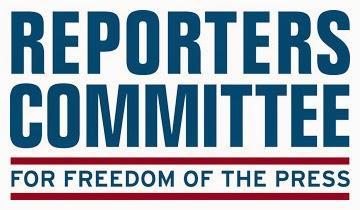 Why did it take five months for me to be released from jail? I don't know of a simple answer to that question, but a new report from the Reporters Committee for Freedom of the Press (RCFP) shines light on that and other issues.
Why did it take five months for me to be released from jail? I don't know of a simple answer to that question, but a new report from the Reporters Committee for Freedom of the Press (RCFP) shines light on that and other issues.Reporter Michael Rooney wrote the article, titled "Blogger Roger Shuler released after five months in jail." Rooney addresses the challenges I faced in dealing with a court order that, according to commenters from both the left and right, ran contrary to long-established First Amendment law.
One of the fundamentals of civil contempt law in Alabama is that the subject must be capable of complying with the order. Here is how one article puts it:
Civil contempt refers to a willful, continuing failure or refusal of a person to comply with a court’s order, ruling, or command, including a subpoena. In order for there to be a civil contempt the ruling, order, or command must still be capable of being complied with before Alabama contempt charges will be justified.
In jail, with no access to a computer or the Web, I was not physically capable of complying with the court's order. That's why so much of the burden wound up falling on my wife, Carol. From the RCFP article:
Shuler said he did not take down the materials sooner because he did not have adequate information or resources to purge the contempt.
“At my Nov. 14 hearing, the only hearing I had in the case, the court gave me no direction on how I could purge myself of contempt," Shuler said. "I noted that I had no computer or Web access to take down the posts, even though I knew it was unlawful to be forced into taking them down. The court's response was more or less that I had to resolve that problem myself. With that kind of response from the court I felt caught between the proverbial ‘rock and a hard place.’”
Shuler also explained that “I also was limited by that fact that Carol and I had no experience dealing with issues related to jail and arrest."
"Neither of us ever had been close to being incarcerated before," he said. "We simply did the best we could with an extremely stressful, unfair situation.”
As Rooney notes, the RCFP was one of several organizations that issued briefs saying the take-down order was inappropriate from the outset:
The Reporters Committee for Freedom of the Press . . . argued that the process by which the court issued the take-down order was problematic.
"It appears that there was no full adjudication on the merits or default judgment ever issued against the Shulers on the defamation claim," the letter states. "As such, the temporary restraining order and preliminary injunctions amount to unconstitutional prior restraints."
